Most men fall into one of two camps. There are those who love summer for the simplicity of throwing on shorts and a T-shirt, and then there are those who get all giddy at the mere mention of the L-word (that’s layering, in case you were unsure.)
For those in the latter group, good news, we’ve broken down every essential layering piece you need to have at your disposal this season. For those still mourning the loss of sun, we’re fairly sure this list will convince you to think otherwise. It’s time to make like a well-dressed onion and embrace your layers.
The Shacket
The shacket: awful name, excellent layering piece. Part way between a shirt and a jacket, it’s a solid example of when refusing to take sides isn’t maddeningly annoying. It’s the opposite, in fact.
The jury is still out on the exact definition of a shacket (and what separates it from an overshirt), but in our book, the best iterations are made from materials heavier than an Oxford button-down to fend off the chill, but still retain the long-sleeved shirt’s slim cut. It’s essentially two items of clothing for the price of one (so we can buy twice as many, right?)
The shacket is also something of a silver bullet for unpredictable weather according to Whistles creative director Nick Passmore. “A wool shacket, in particular, is warm enough to be worn on its own, yet slim enough to fit under a coat.”
How you style yours all comes down to the weather. On milder days, try wearing it open over a crew neck T-shirt. Then, once we reach the thick of autumn, deploy it over a thinner shirt and T-shirt, or (if you’re a certified statement-maker) over a lightweight roll neck jumper.
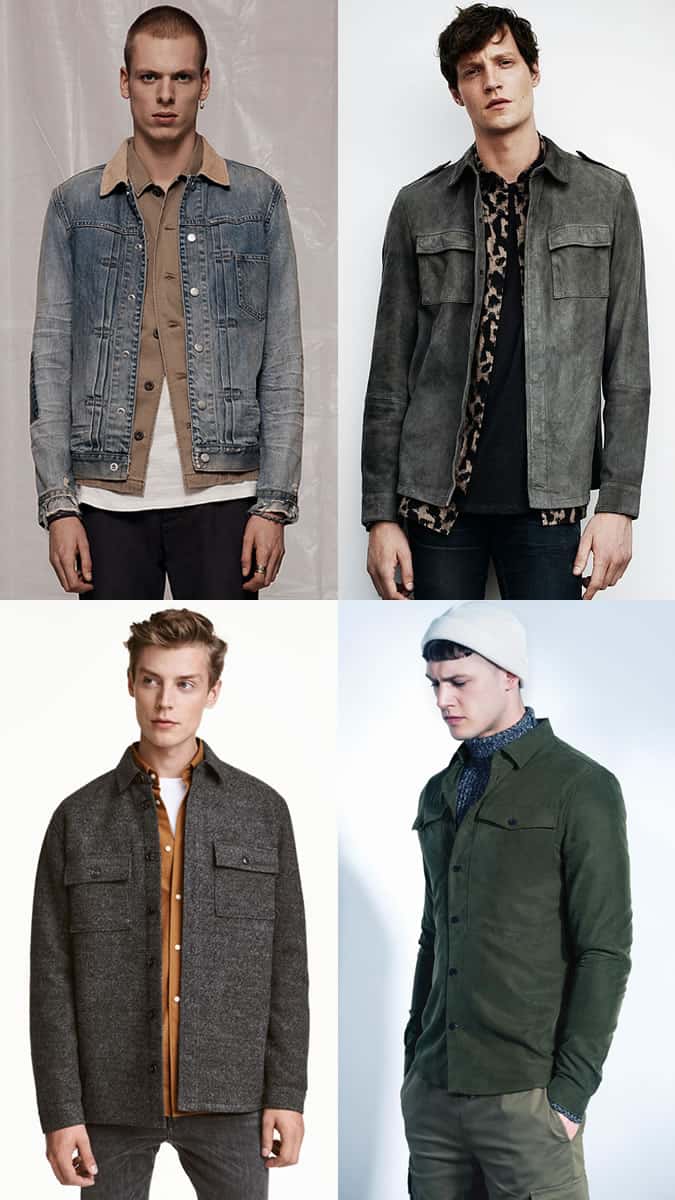

The Unstructured Blazer
The only thing worse than a blazer that doesn’t fit is a blazer that does fit, but has been put under the strain of so many additional layers that it now resembles an overstuffed sausage skin.
So the unstructured blazer, with its lack of rigid structure, is much to be celebrated when it comes to piling on the extras. The fact that the trimmed-down interior leaves ample room for everything from a T-shirt and sweatshirt to a shirt and gilet is just spoiling us.
“Unstructured jackets are generally cut a little looser on the body and generally have a more casual look and feel,” explains celebrity stylist Phill Tarling, who has dressed the likes of Tom Hardy.
Separates in navy, black or charcoal grey are always a solid shout, but Tarling recommends mixing it up to maximise the appeal of a layered unstructured blazer. “For a sophisticated appearance, coordinate with items of a similar colour – blazers in shades of green are particularly on trend this season.”


The Cardigan
Even if you’re not into the whole ‘grandad chic’ thing, that’s no reason to force the cardigan into early retirement. As long as you leave stuffing tissues up the sleeve to the free bus pass brigade, the design can be a layering god-send.
Of course, we’re card-carrying members of the chunky cardigan appreciation society, but when it comes to layering, a light- to medium-gauge version (ideally in a temperature-regulating fabric such as Merino wool) is a far more versatile choice.
“Merino’s an active fibre – it reacts to changes in body temperature, keeping you warm on crisp autumnal days, and cool if the weather is unseasonably warm,” says the design team at Sunspel, a label celebrated as much for its knits as its sea island cotton T-shirts. “Your knit should be light enough to pull on over a T-shirt or layer under a coat when it gets colder.”
With that versatility comes a range of ways to wear the cardigan. A neutral example works well to add ballast to a shirt and tie combination when it’s not quite coat weather yet. But equally, options in a medium weight and with a shawl collar look great layered over a T-shirt or grandad collar shirt.
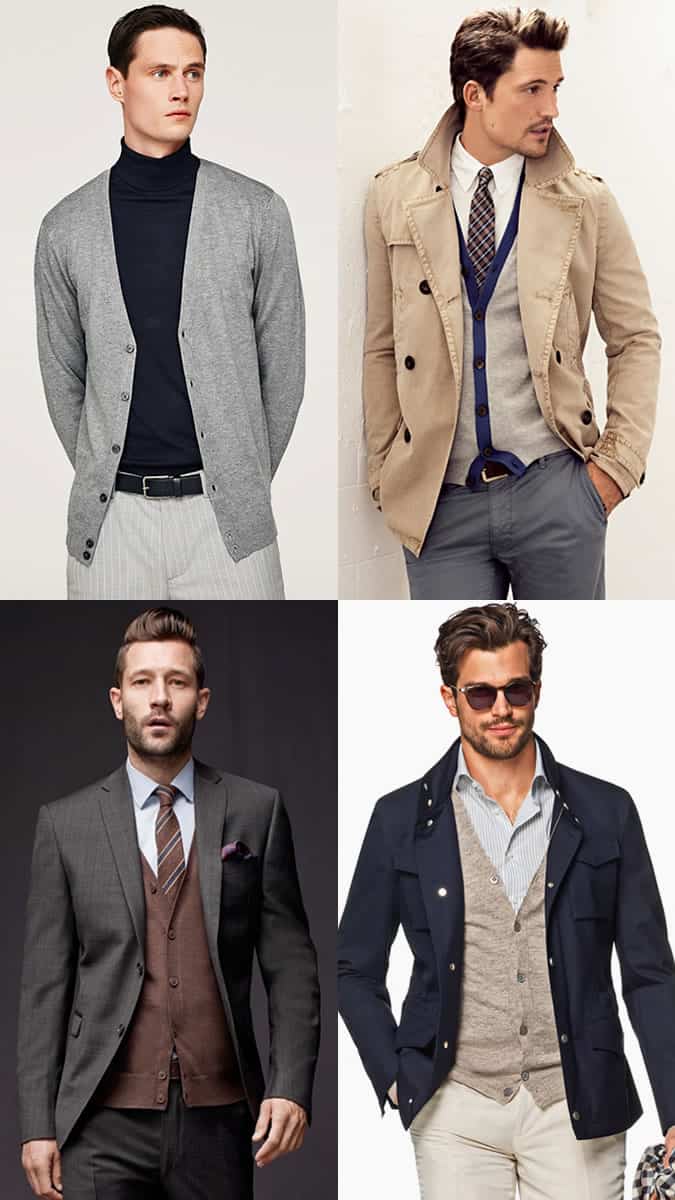

The Gilet
The problem when something is sleeveless, padded and intended for country pursuits or sports, is that the odds are instantly stacked against it, irrespective of how handy it may be for layering. But despite all that, the gilet has firmly infiltrated men’s autumn/winter wardrobes.
Fit and weight are crucial in bringing this piece into play – go too chunky, and you’re basically The Michelin Man, err too tight, and nothing will fit underneath. In a win for fashion and function, the best gilets have got that midweight construction and aesthetics down, making them ideal for sliding underneath a suit jacket or as an easily removable top layer over a thick gauge jumper.
To make the gilet look its best, Luke McDonald, a stylist at men’s personal shopping service Thread, advises using texture to let it stand out. “You want your gilet to contrast and add some flair to your look. So if everything else is cotton, think a tactile fabric like wool, or if you’re in flannel, then go for nylon.”
Don’t be shy of bold colours either, as this can pay dividends for your layering prowess. “You should choose a colour that complements your existing wardrobe. That doesn’t necessarily mean neutral or boring though; an orange or bright red gilet can be a great way to add interest to an otherwise pared-back look”.
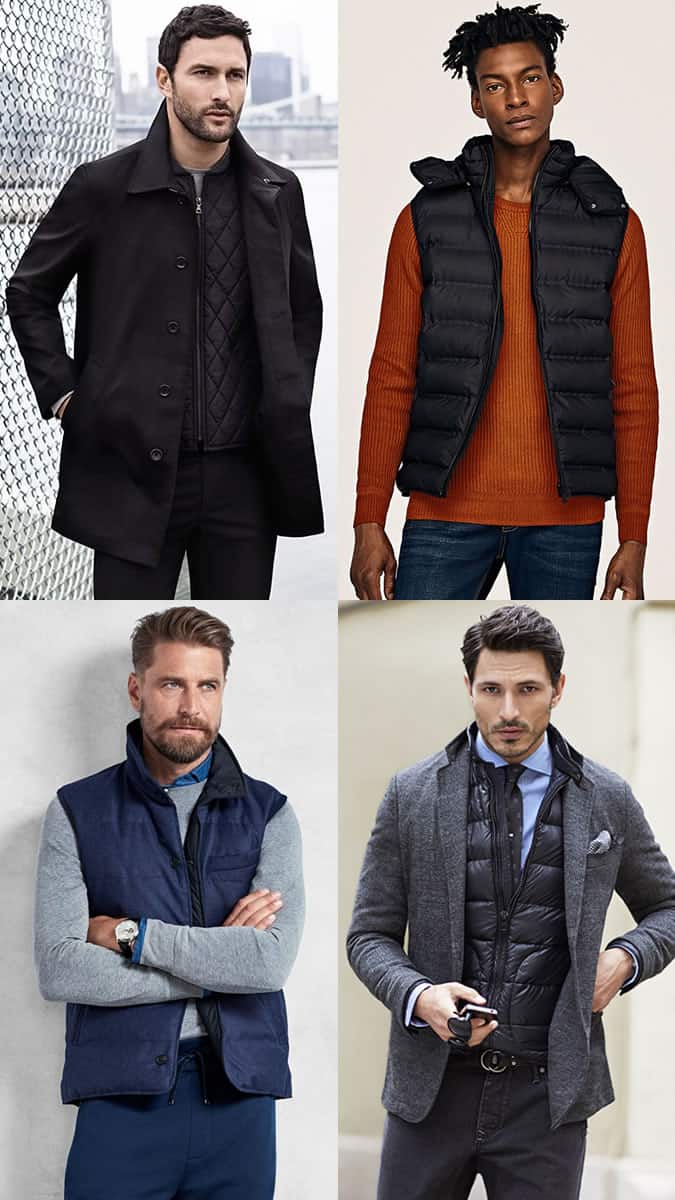

The Hoodie
We’ve got a lot of love for the hoodie, and becoming acquainted with it as a menswear staple is arguably the best thing about being a teenager. Of course, the trouble until recently was that beyond those years, it was inappropriate to be seen in one. But not anymore. Over the past few years, the hoodie has gone high-end, and it gets even better when recruited as a layer during autumn.
“Keep the colour mid- to light-grey marl and the styling simple – I’d never expect to see a hoodie worn as outerwear.” says menswear designer Carolyn Massey, who has worked with brands including Dunhill and Kilgour.
Following that advice, always use the hoodie as a layer. Pop one on under a leather jacket or wool overcoat on off-duty days, or get creative by wearing one beneath your suit jacket on the commute (we assume to a business-casual office, unless you actually want your marching orders).
Fond as we are of the recent trend for statement prints and sloganwear, resist the urge to become a walking billboard by opting for styles with minimal branding and added design details. Or risk the new classic being banished back to its adolescent bedroom.

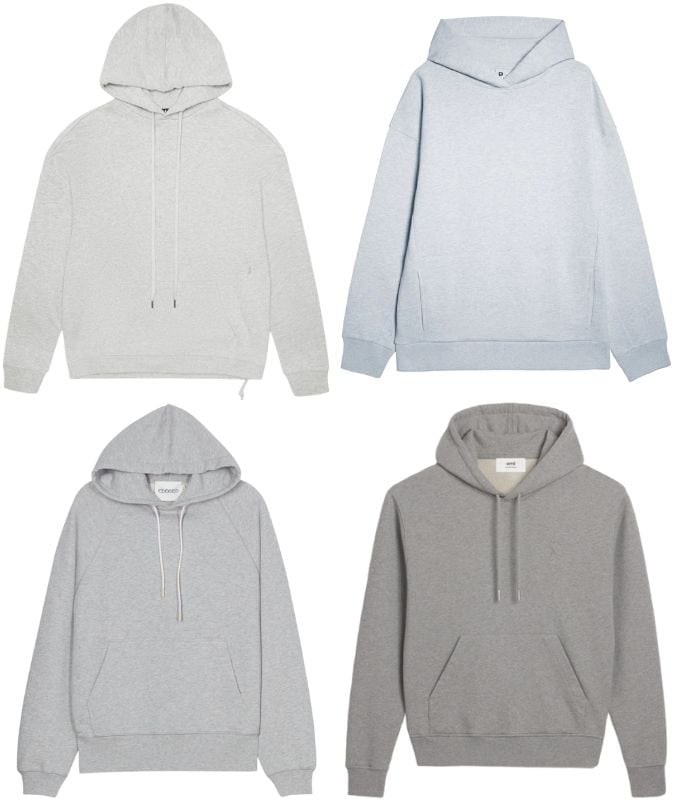
The Roll Neck
For many, winter is a time when they are required to choose between form and function. Not so in the case of the roll neck
. Aside from looking good (see Sir Michael Caine, Steve McQueen and more recently Zayn Malik for proof), northwards-creeping knitwear knows no bound in its ability to keep wearers warm.
“The roll neck is a versatile staple and can be worn with pretty much anything,” says Tarling. And he’s not wrong. Want to layer with outerwear? Try a bomber, denim or suede jacket for a look that will fend of frosty winds but won’t cause you to break a sweat. Feeling a little more dressy? An overcoat or blazer make for equally attractive companions.
To achieve all of these combinations, approach buying a roll neck with the same word in mind as you would wine: no not ‘cheap’, but ‘fine’. Chunkier versions in the style of Ernest Hemingway are tempting but limit your pairings.


The Flannel Shirt
Apart from actual lumberjacks and perhaps David Beckham, there are surprisingly few men who can pull off a plaid flannel shirt worn solo and buttoned to the top. For this reason, the rugged piece has reasonable grounds to file for official status as a layering piece first and foremost.
And we’re not alone in our thinking. “As the months grow colder, layering becomes essential for any outfit,” says menswear designer and former Topman creative director Gordon Richardson. “A plaid shirt is a versatile wardrobe staple which will enable you to combine different pieces with ease.”
Until it’s cold enough for you to see your breath, the thicker, insulating flannel material makes it perfect for wearing over a crew-neck T-shirt or Henley top. When the mercury does drop, however, allow it to retreat under a coat or cool jacket and leave just enough buttons undone to still show a flash of tee.
Aside from adding a hit of colour to a casual outfit, it can also bring much-welcomed texture to a casual suited look. Need proof? Try a neatly fitted option in monochrome under an unstructured blazer and see for yourself.


The Denim Jacket
It may be one of the oldest and most widely adored items of menswear, but it’s also one of the most criminally under-utilised as a layering piece. Sure, a denim jacket is pretty appealing in its intended form during the summer months, but why send it into storage for half of the year if you don’t have to?
Similar to a shacket, a trucker can effectively be repurposed as a mid-layer and is ideal for adding a hint of texture and colour to an otherwise staid look.
“Try a light blue denim jacket beneath a camel coat,” says Sam Brady, the blogger behind A Gentleman’s Row. “The colours work brilliantly together and keeping the top two buttons undone will stop the stiff denim becoming too restrictive.”
The denim jacket isn’t just a weekend wonder either (though it does look great over a hoodie or check shirt), it can work for the office too. When worn beneath an unstructured blazer and over your usual shirt and tie, a light blue design with minimal detailing will take your smart-casual layering game to the next level.
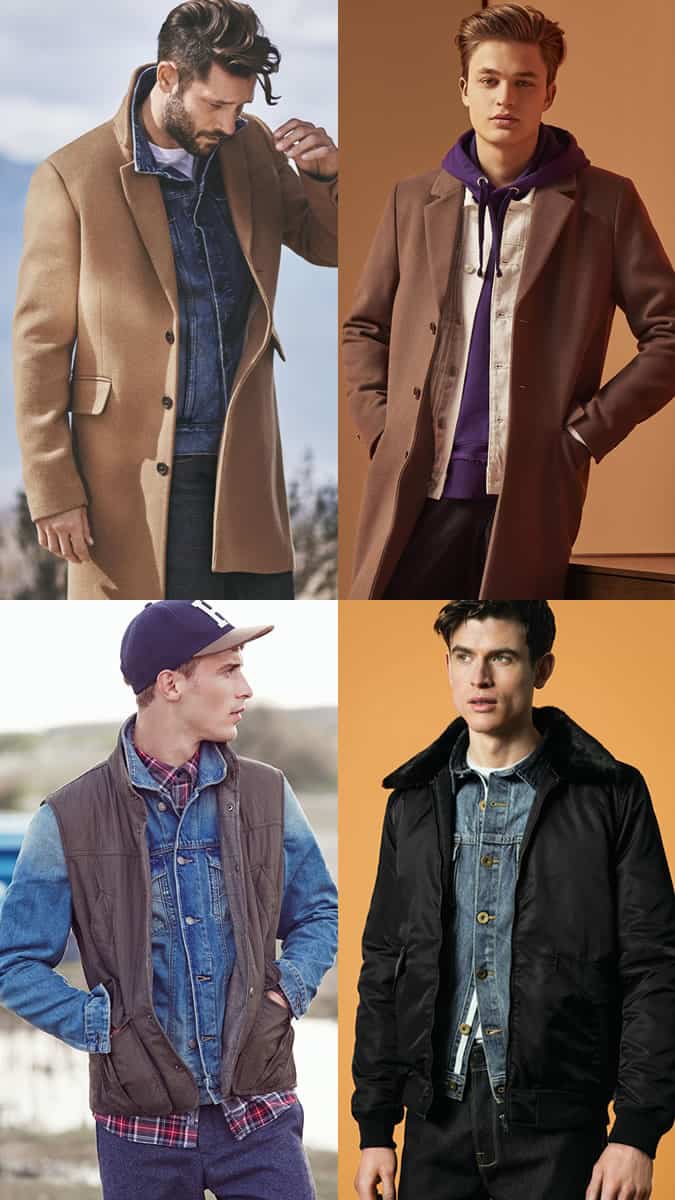
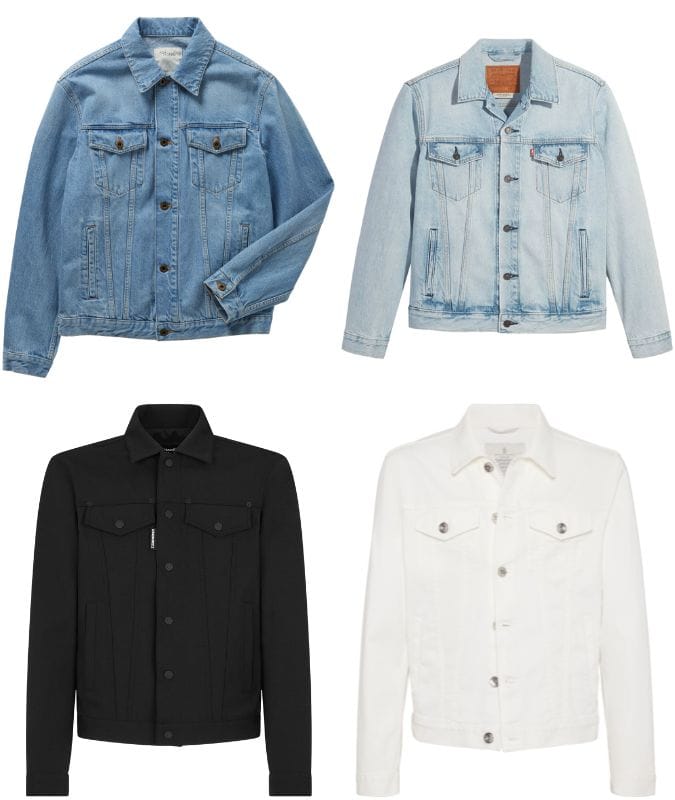
The Track Top
It’s official, teachers have taken over the #menswear game. Joining the geography goof’s corduroy suit is the track top, sported by every games teacher since the 1980s.
Like corduroy, the zip-up piece has received an update at the hands of designers in recent seasons: slimmed-down, stripped-back and made significantly less saturated in colour. What’s left is a surprisingly warm and lightweight layer that can add ‘actually wearable IRL’ to its resume.
“The resurgence of well-designed sportswear means that guys can now don sportswear with confidence,” says Richardson.
Pulling off the layered zip top is all about nailing the divide between dressed up and dressed down (and having the right attitude). Slip one under a smartly tailored suit for instant commute-friendly charm or team one with a structured camel coat and jeans on the weekend. Advanced level layering, novices need not apply.


Read the original article here



